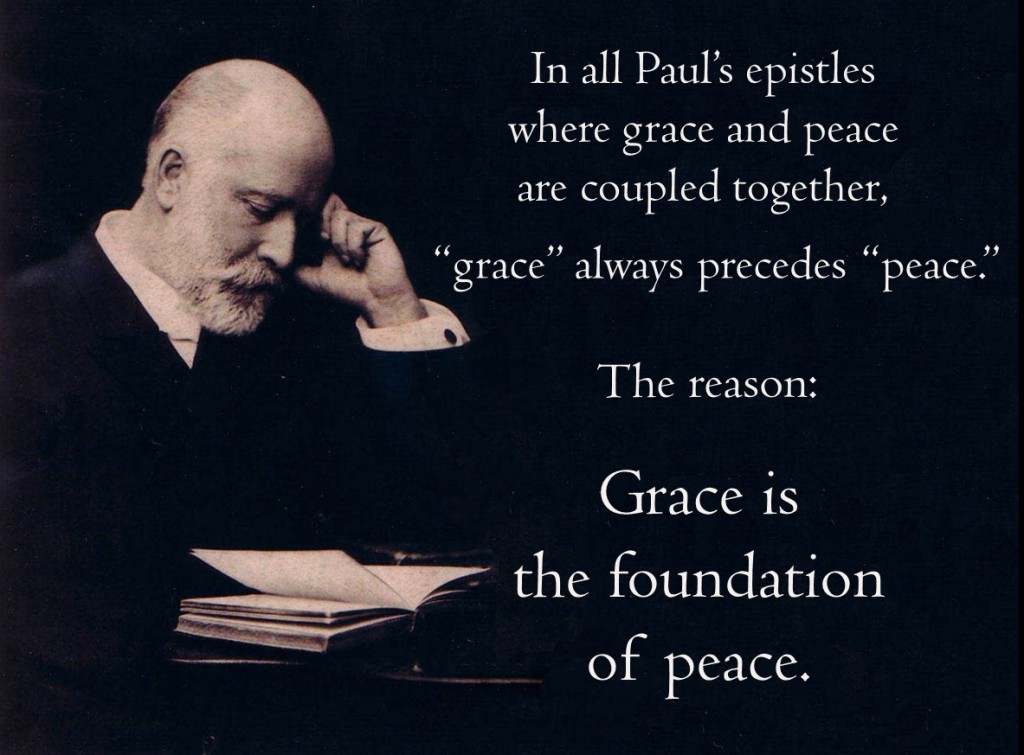Grace [be] to you, and peace, from God our Father, and [from] the Lord Jesus Christ. ~Ephesians 1:2
Paul prays that the saints in Ephesus may have two things: (1) “Grace,” i.e., loving favor, or unmerited favor; (2) “Peace” (i.e., inward peace of heart, cf. John 14:27).
This “grace” and “peace” that Paul prays the saints in Ephesus may have, would be “from God our Father, and the Lord Jesus Christ” (cf. Rom. 1:7; I Cor. 1:3; II Cor. 1:2; Gal. 1:3; Phil. 1:2; Col. 1:2; I Thess. 1:1,2: II Thess. 1:1,2; Phile. 2). Only God the Father, and Jesus Christ His Son, our Lord, can bestow grace and peace. The man who has “grace and peace from God our Father, and the Lord Jesus Christ” will have all he needs.
In all Paul’s epistles where grace and peace are coupled together, “grace” always precedes “peace.” The reason of this is because grace is the foundation of peace.
God is “our Father,” the Father of those who believe in Christ (Gal. 3:26), and of them alone (John 1:12). All men are God’s “offspring” in that He created man in His own image (Acts 17:28, 29), but in a full sense those only are his children who receive the Lord Jesus (John 1:12). These become actual partakers of the Divine nature (II Peter 1:4).
Note the way in which the Apostle Paul in this verse couples the name of the Lord Jesus Christ with that of God the Father. The name of the Lord Jesus Christ is coupled with that of God the Father (as the author of grace and peace) in a way in which it would be impossible to couple the name of any finite being with that of the Deity. Here is one of the countless evidences in the Word of God that Jesus Christ is a Divine person.
This also comes out in this verse by calling Him “the Lord” (cf. Acts 10:36). The word translated “Lord” in this verse is used of men without the definite article, but never with the definite article. If any one has any doubts as to the real Deity of our Lord Jesus, let him take a concordance and go through it and look up every passage in which Jesus is spoken of as “the Lord,” and he will find that this title is used of no one but the Lord Jesus Christ, and of Jehovah.
But not only is Jesus Lord, He is also Saviour. That is the significance of His name Jesus (cf. Matt. 1:21). But still further, He is “Christ,” i.e. God’s anointed, the prophesied anointed one, prophet, priest or king.
[This was written by R.A. Torrey for his regular column, “Daily Devotional Studies in the New Testament: For Individual Meditation and Family Worship,” published regularly in Biola’s magazine The King’s Business from 1915-1918. These comments on Ephesians have never been republished since their original appearance there in the June, 1918 issue.]

